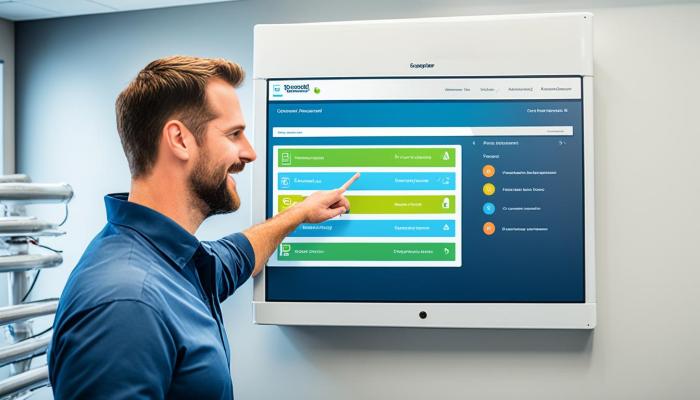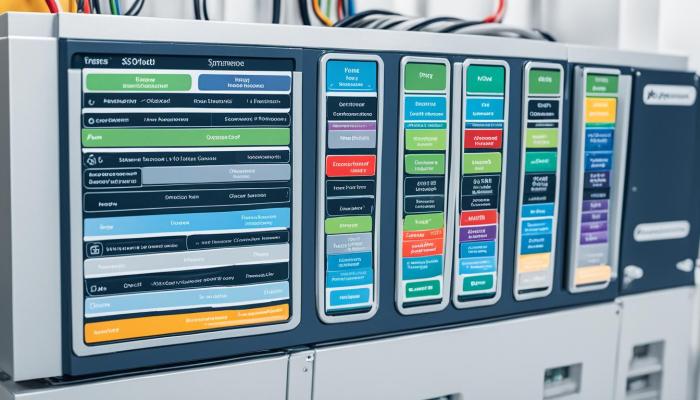HVAC software for small business offers a transformative solution, streamlining operations and boosting efficiency. Managing appointments, tracking inventory, generating invoices, and maintaining customer records becomes significantly easier with the right software. This allows HVAC businesses to focus on what truly matters: providing excellent service and growing their client base. Proper software implementation can lead to improved customer satisfaction, reduced administrative overhead, and ultimately, increased profitability.
The market offers a range of options, from simple scheduling tools to comprehensive management systems. Choosing the right software depends on the specific needs and size of your business. Factors to consider include the number of technicians, service areas, and the level of integration required with other business systems. Investing in the right HVAC software can be a game-changer, providing a competitive edge and setting the stage for sustainable growth.
Running a successful HVAC small business requires more than just technical expertise. Efficient management of scheduling, dispatching, invoicing, and customer relationship management (CRM) is crucial for profitability and growth. This is where HVAC software steps in, offering a powerful suite of tools to streamline operations and enhance your bottom line. This comprehensive guide explores the benefits, features, and considerations when selecting the right HVAC software for your small business.

Source: hvacsoftwarefaqs.com
Understanding the Needs of Small HVAC Businesses: Hvac Software For Small Business
Small HVAC businesses face unique challenges. They often operate with limited staff, requiring software that’s user-friendly and easy to implement. Scalability is also key; the software should adapt as your business grows, without requiring a complete overhaul. Key needs often include:
- Simplified Scheduling and Dispatching: Efficiently manage appointments, technician availability, and job assignments.
- Automated Invoicing and Payments: Reduce administrative burden and accelerate payment processing.
- Improved Customer Relationship Management (CRM): Track customer interactions, preferences, and service history for enhanced customer satisfaction.
- Inventory Management: Monitor stock levels, track parts usage, and minimize waste.
- Reporting and Analytics: Gain valuable insights into business performance, identify areas for improvement, and track key metrics like revenue, expenses, and technician productivity.
- Mobile Accessibility: Allow technicians to access schedules, customer information, and other critical data on the go.
Key Features of Effective HVAC Software
Choosing the right HVAC software involves carefully considering its features. Here are some essential functionalities to look for:
Scheduling and Dispatching
- Calendar Integration: Seamless integration with popular calendar applications for easy scheduling and appointment management.
- Automated Reminders and Notifications: Reduce no-shows and improve customer communication.
- GPS Tracking (Optional): Monitor technician location in real-time for improved dispatching and response times.
- Optimized Routing: Plan efficient routes for technicians to minimize travel time and maximize productivity. This often utilizes features like Google Maps API integration.
Invoicing and Payments
- Automated Invoice Generation: Create professional invoices quickly and easily.
- Online Payment Processing: Accept payments through various methods, including credit cards and digital wallets.
- Recurring Billing: Automate billing for maintenance contracts and recurring services.
- Payment Reminders: Reduce late payments and improve cash flow.
Customer Relationship Management (CRM)
- Customer Database: Store customer information, service history, and communication logs in a centralized location.
- Communication Tools: Facilitate communication with customers through email, SMS, or in-app messaging.
- Customer Segmentation: Group customers based on demographics or service needs for targeted marketing and communication.
- Customer Satisfaction Surveys: Gather feedback to improve service quality and identify areas for improvement.
Inventory Management, Hvac software for small business
- Real-time Inventory Tracking: Monitor stock levels and receive alerts when supplies are low.
- Part Number Tracking: Easily identify and track parts used on jobs.
- Automated Ordering: Automatically reorder parts when stock levels fall below a certain threshold.
Reporting and Analytics
- Customizable Reports: Generate reports on key performance indicators (KPIs) such as revenue, expenses, and technician productivity.
- Data Visualization: Present data in an easy-to-understand format using charts and graphs.
- Financial Reporting: Track income, expenses, and profitability.
Choosing the Right HVAC Software for Your Business
Selecting the appropriate HVAC software depends on your specific needs and budget. Consider these factors:
- Scalability: Choose software that can adapt to your business’s growth.
- User-Friendliness: Opt for intuitive software that is easy for your team to learn and use.
- Integration Capabilities: Ensure the software integrates with other tools you use, such as accounting software or CRM platforms.
- Customer Support: Choose a provider that offers reliable customer support and training.
- Pricing: Compare pricing models and features to find the best value for your money. Consider subscription-based models versus one-time purchases.
Popular HVAC Software Options
Several reputable software solutions cater to the needs of small HVAC businesses. Researching different options is crucial to finding the best fit. Some examples include (Note: This is not an exhaustive list and specific features and pricing may change):

Source: hvacsoftwarefaqs.com
- ServiceTitan
- Housecall Pro
- JobNimbus
- FieldEdge
- Commusoft
It’s highly recommended to explore the websites of these providers and potentially request demos to understand their capabilities fully.
Frequently Asked Questions (FAQ)
- Q: How much does HVAC software cost? A: Pricing varies widely depending on features, the number of users, and the provider. Expect to pay a monthly or annual subscription fee.
- Q: Is HVAC software difficult to learn? A: Most reputable providers offer user-friendly interfaces and training resources to help your team get started quickly.
- Q: Can HVAC software integrate with my existing accounting software? A: Many HVAC software solutions offer integration capabilities with popular accounting platforms. Check the provider’s specifications to ensure compatibility.
- Q: What are the benefits of using HVAC software? A: Benefits include improved scheduling, reduced administrative burden, enhanced customer communication, better inventory management, and improved overall efficiency and profitability.
- Q: Can I use HVAC software on mobile devices? A: Most modern HVAC software solutions offer mobile apps for technicians to access crucial information on the go.
Conclusion
Investing in the right HVAC software can significantly improve the efficiency and profitability of your small business. By streamlining operations, enhancing customer relationships, and providing valuable insights into your business performance, HVAC software empowers you to focus on what matters most: providing exceptional service to your customers. Take the time to research your options, consider your specific needs, and choose a solution that will help your business thrive.
Call to Action
Ready to take your HVAC business to the next level? Explore the leading HVAC software solutions today and request a demo to see how they can benefit your operations. Don’t wait – start maximizing your efficiency and profitability now!
In conclusion, embracing HVAC software is not merely a technological upgrade; it’s a strategic investment for small businesses in the HVAC industry. By leveraging the power of automation and data-driven insights, companies can optimize their workflows, enhance customer relationships, and ultimately achieve greater success. The right software can simplify complex tasks, freeing up valuable time and resources to focus on core business objectives.

Source: hvacsoftwarefaqs.com
The benefits extend beyond increased efficiency, impacting profitability and fostering long-term growth.
Question Bank
What are the typical costs associated with HVAC software?
Costs vary widely depending on features, subscription models (monthly or annual), and the vendor. Expect a range from basic free options with limited functionality to more comprehensive paid solutions costing hundreds of dollars per month.
How long does it typically take to implement HVAC software?
Implementation time depends on the software’s complexity and your business’s size. Simpler systems might be ready to use within days, while more comprehensive systems could take weeks or even months for full integration.
What kind of training is needed to use HVAC software effectively?
Most vendors offer training resources, including tutorials, online documentation, and sometimes even in-person or virtual training sessions. The learning curve varies depending on the software’s user-friendliness and your team’s technical skills.
Can HVAC software integrate with other business tools?
Many modern HVAC software solutions offer integration with other business tools like accounting software (e.g., QuickBooks), CRM systems, and payment gateways, streamlining your overall operations.